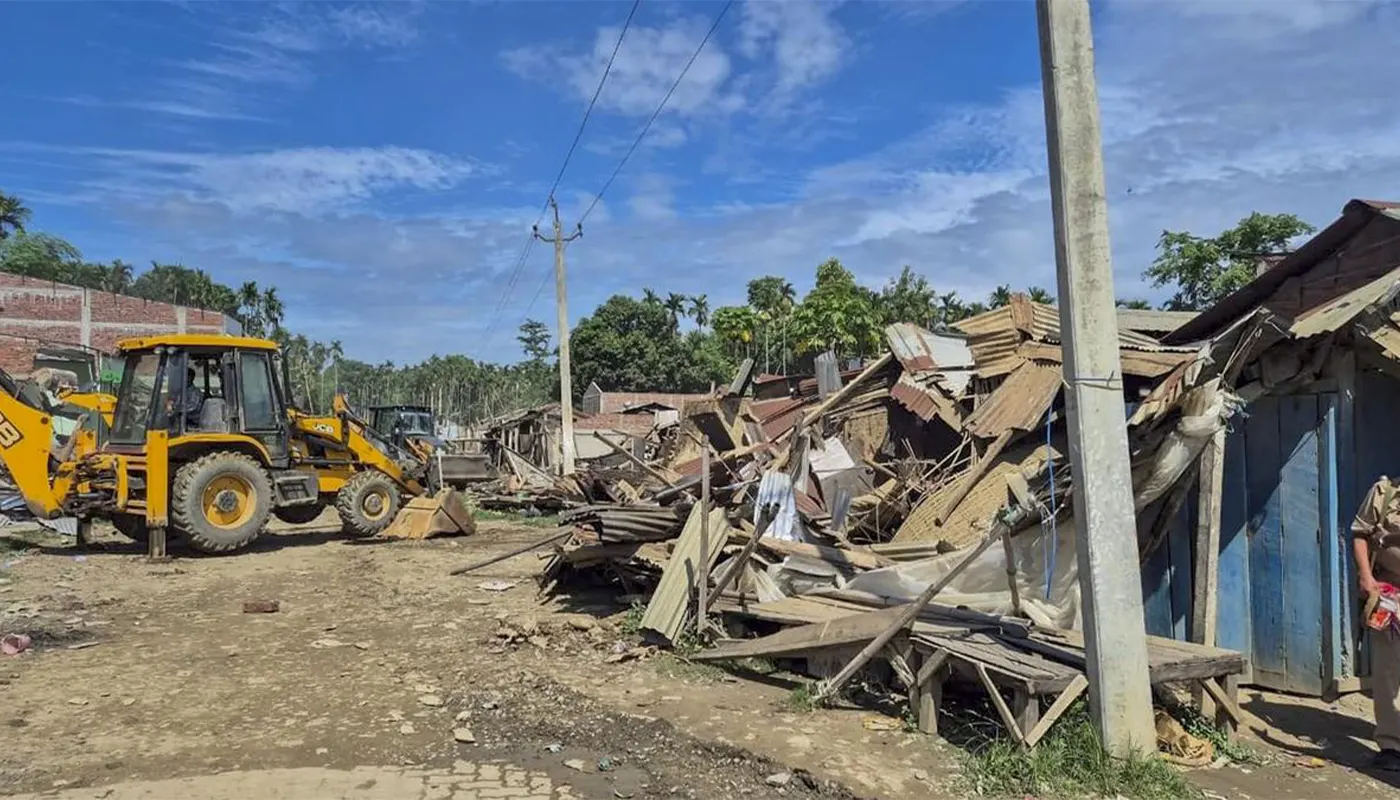GOLAGHAT / GOALPARA, INDIA — Assam demolition drive displaces Thousands of Bengali-origin Muslim families, while Hindu settlements remain untouched in the same area.
A sweeping eviction campaign by Assam authorities has led to the forced displacement of thousands of Muslim families, predominantly of Bengali origin, raising serious concerns about discrimination and legal violations.
In Golaghat district’s Uriamghat area, over 2,000 Muslim households living in the Rengma Reserve Forest have been targeted during large-scale demolitions targeting what authorities describe as illegal encroachments.
The operation, overseen by the forest department with support from over 1,500 enforcement personnel, is part of a broader land reclamation initiative spanning nearly 4,900 acres.
Similarly, in Goalpara district’s Hasila Beel region, authorities displaced more than 660 Muslim families, destroying homes, schools, mosques, and electricity and water infrastructure—leaving communities with little notice and no rehabilitation assistance.
According to civil society reports, over 24,000 Muslims have become homeless in eviction drives across Assam—including in Goalpara, Dhubri, Nalbari, and Lakhimpur—with no relief or resettlement support.
Allegations of Selective Enforcement and Legal Breach
Affected residents and watchdog groups allege that eviction actions disproportionately targeted Muslim settlements, while Hindu-owned homes, even built on the same government land, remained untouched.
Legal advocates point to violations of Supreme Court directives that mandate prior notice and rehabilitation for evicted households, alleging that many families received only minimal warning and were not offered alternate housing before demolition began.
Political and Human Rights Backlash
National and regional organizations have condemned the drive:
- The Jamiat Ulama petitioned Chief Minister Himanta Biswa Sarma, calling the evictions “inhuman, unconstitutional,” and driven by religious discrimination, noting many resettled families are Indian citizens displaced by floods or erosion decades ago.
- Student unions and activists, including AAMSU and AIUDF, labelled the operations gross violations of minority rights and called for immediate humanitarian relief and legal protections.
Official Stance and Continued Crackdown
Chief Minister Sarma has doubled down, emphasising the government’s zero-tolerance policy for land encroachment and its mission to reclaim over 45,950 acres of land, primarily occupied by non-tribal settlers. He suggested that evictees (Muslims) should relocate to Bangladesh or Afghanistan if remaining in Assam is an issue.
CM Sarma stressed that settlements lacking legal rights under the Forest Rights Act of 2006—including many Muslim families—would not be spared, while tribal communities are exempt from eviction.
Humanitarian Toll and Ongoing Crisis
- In Goalpara, witnesses described the demolition zones as chaotic and distressing—women and children fleeing early-morning actions, entire communities left without shelter, water, food, sanitation, or medical aid.
- Some incidents reportedly resulted in deaths and mental health crises, including a suicide attempt and at least one heart attack during demolition operations.
The eviction drives have drawn widespread condemnation, including protests by opposition parties in Assam and southern India, framing the demolitions as politically motivated and targeting minority communities ahead of state elections.
Source: Local News Agencies






